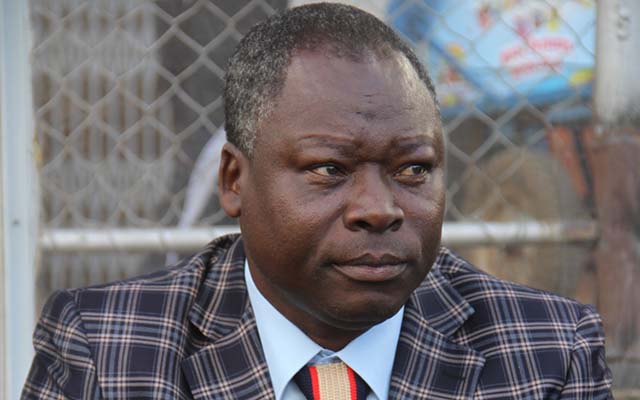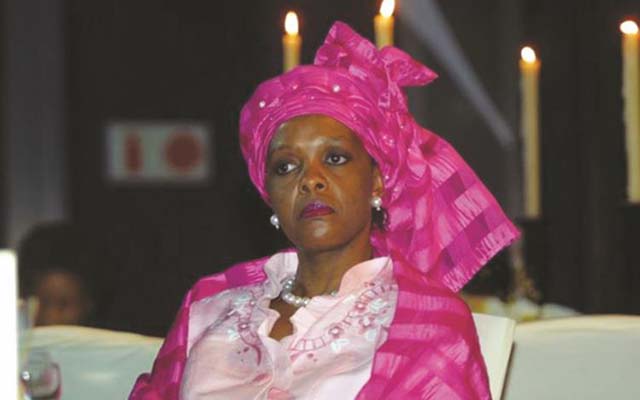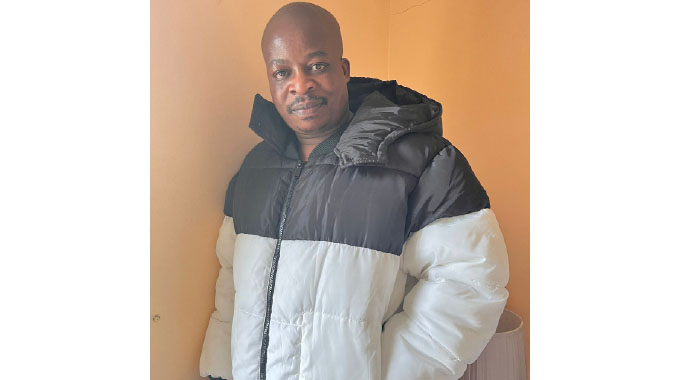KHAMA BILLIAT ISN’T A SAINT, BUT HE IS BY NO MEANS A DEVIL

Sharuko on Saturday
ON November 13, 1861, an American priest, Reverend M R Watkinson sent a letter to the United States Treasury, petitioning the department to add a powerful statement that recognised “Almighty God in some form on our coins’’.
Watkinson’s argument was that this could be used “as a way of relieving the people from the ignominy of heathenism”, itself a barbaric practice where the presence of God, and the need to worship him, did not exist in their lives.
The phrase, “In God We Trust,’’ has been the official United States motto, since its adoption in 1956, when it replaced the old one, “El pluribus unum”, which had been in existence since 1782 when the Great Seal of the US was created.
Such is its enduring appeal, and acceptance, that it cuts across religions — from Christianity to Judaism and from Hindus to Muslims — found in Psalms and Proverbs in the Bible, in two places in the Koran and in Islam it’s referred to as Tawakkul.
Many American public schools displayed framed posters of the motto, “In God We Trust”, after the 9 /11 terrorist attacks and in a number of states in America — including North and South Carolina, Wisconsin, Pennsylvania, Utah, Virginia, Florida, Arizona — you can use it on special vehicle licence plates.
Given that the US currency has been a big part of us since our Zimbabwe dollar was forced out of circulation, to take a sabbatical, by the pressure of hyperinflation, I guess a lot of you guys have got used to seeing the phrase “In God We Trust” on the money in your wallets, pockets or when you make your transactions.
For Khama Billiat, the phrase “In God We Trust” has provided a shield for him, an escape from the storm triggered by reports in the South African media in the past week, where his image has been tainted by a graphic painting of him as someone who is allergic to the virtues of professionalism.
The South African media vultures have been all over him, feasting on a character which they claim is critically flawed, a prisoner to the lure of alcohol he even allegedly comes to training hopelessly drunk after partying all night the previous day.
In just a week, we have seen Khama being transformed from the Golden Boy, who was the face of the South African Premiership last year when he scooped all the top awards at the annual ceremony to honour the best footballer plying his trade in that country, into the ultimate Bad Boy of Super Diski.
The Super Diski version of Paul “Gazza” Gascoigne, the England superstar midfielder whose life and career were ruined by alcohol abuse and other vices, an athlete who isn’t only an insult to the professionalism expected of a player of his status, but one whose wild lifestyle is a cancer that should be removed from their game before it poisons their kids.
That’s why we have seen some of the newspapers championing the campaign, this week, for Khama to be sold, cast away somewhere in Saudi Arabia or Egypt, far away from their Mzansi, the land of the upright, the land where only model foreign footballers should be given the permit to play on their green football fields, dripping with purity, where monsters like Khama are a curse that should be exorcised.
With no public support coming from his club, Khama has been vulnerable and, in such a very difficult week, he has turned to an American motto hoping to find divine defence amid this media blitzkrieg.
And each and every message he has posted on his social media platforms has been attached with the phrase, “In God We Trust”, even turning to King David’s prayer in the book of Psalms for the Lord to look at his soul and remind him if, indeed, he was messing things up as was being suggested by those who have dedicated pages to his demonisation.
I AM NOT KHAMA’s ADVOCATE, BUT SOMETHING JUST DOESN’T ADD UP FOR ME
Khama’s attachment with negativity, from all those stories about his romantic associations with raunchy dancer Bev and being robbed at gunpoint in a shop in the early hours of the day when model professionals are expected to be in bed, have not helped the cause of those who have tried to jump to his defence.
I’m not Khama’s advocate because, unlike Peter Ndlovu, Moses Chunga or Benjani Mwaruwari, he isn’t someone I know very well even though my admiration for his unique talent knows no boundaries and my belief of his immense value to our Warriors’ cause has and will never be shaken.
It’s difficult for me to provide judgment on him as a person because, away from the football ring, I haven’t interacted with him a lot to provide me with enough material to have an informed position on how he is away from the spotlight that comes with the moments he spends on the football field either representing my country or his club.
Given he is someone who represents the Warriors with distinction, playing a leading role in the team — and by extension my country — as we ended a decade of waiting for a place at the Nations Cup finals, he is someone I have always wished well in his football career.
I am not a Mamelodi Sundowns fan in a league where no club appeals to me because of my preference for substance instead of theatre and for quality instead of comedy, but forced to find some remote love in Super Diski, I would grudgingly find it in the camp of the old lady called Orlando Pirates.
However, Khama’s magical feet — and Pitso Mosimane’s refreshing and successful mission to prove that African coaches aren’t inferior to their European or South American counterparts — has made me find a reason to celebrate the Brazilians’ success.
What I find a bit ironic, though, is the striking coincidence between the explosion of all these so-called dark chapters of Khama’s indiscretions and our Warrior’s refusal to be bullied into signing a contract extension at Sundowns.
The silence from his club who, ordinarily would be expected to support him, has fuelled speculation that this smear campaign is all part of a grand hatchet job from inside Mamelodi Sundowns to significantly damage Khama’s reputation or remind him who calls the shots in Mzansi football.
THE TOUCH OF INNOCENCE . . .

These two vintage pictures of Knowledge Musona (left) and Khama Billiat during their schoolboy days are worth their price in gold
By standing his ground and exercising his rights it means, six months from now, he will be able to talk to potential suitors without them breaking any rules and regulations related to player transfers.
It also means he won’t be burdened by the weight of the crazy buyout clause that has turned him into a virtual prisoner at Sundowns and frustrated potential suitors who could have long plucked him out of Super Diski.
It also means his handlers can also negotiate a deal for himself with a potential suitor who doesn’t need to pay the repulsive buyout clause come July next year?
Of course, that amount is nothing for someone like Patrice Motsepe, the billionaire owner of Sundowns, but for those who earn their living telling the big boss that they have everything under control, employed specifically to ensure star players like Khama don’t get to the last six months without their contracts being extended, it means the world.
Will they tell the big boss that they slept on duty and the prized asset can now simply wait for the end of his contact and escape from the bondage that had characterised his stay with the club and make a lot of money for himself without the team being principal negotiators to where he goes from now onwards?
In South Africa that is dereliction of duty and some people have paid for that with their lives.
Why, I may ask, is that it has become common that any good player, deemed as a special investment by Sundowns, cannot divorce himself from the club without the process turning into a messy affair?
It was the same story with Keagan Dolly when he was courted by a Greek club before he eventually moved to France this year with Sundowns even claiming, at some stage, they had made an error in the buyout clause in the contract that they had signed with the player.
“When they were interested in Keagan‚ we as a family really didn’t want him to go back to Sundowns. Because we had struggled to get him out of Sundowns when he was a junior‚” Ramon Dolly, Keagan’s father, told the SABC at the height of the dispute.
Now, if a club as big as Sundowns, can have the temerity to tell the world that they made a mistake in the buyout figure they inserted in the contract they signed with a player like Dolly, when he tells them he wants to move, what else can they do — using friendly media organisations — to inflict considerable damage on a stubborn foreign boy who is refusing to be bullied?
Khama clearly isn’t a saint, but I don’t think he is the kind of devil they are portraying him to be either and it’s sad that, right now, he is the victim of a relentless and well-oiled machine that will batter him, from all angles, until he is either whipped into line — to sing the master’s song — or suffer severe reputational damage.
That is why, unlike others, we chose not to carry the stories coming from South Africa without testing them.
IF KHAMA IS A DEVIL, WHAT ABOUT WARNER, ROOT, GERRARD AND COMPANY?
At 2am on June 13, 2013, in the Walkabout Bar in central Birmingham, Australian cricketer David Warner punched his English counterpart Joe Root in an altercation which the former claimed was sparked by the latter insulting Muslims, especially South African batsman Hashim Amla’s beard.
The cricketers had been drinking, in those early hours, and the incident made front page news in both the British and Australian newspapers.
Exactly two years later, in August 2015, Warner — who was accused of starting that infamous fracas — was appointed the vice-captain of the Australia cricket team, a position he still holds up today.
Four years after that incident, on February 13 this year, Root was appointed captain of the England cricket team.
“That incident did make me reassess things a bit,” Root told the Daily Mail. “You learn from those experiences and you try to make sure you don’t put yourself or your team-mates in similar scenarios.
“I still like to think I have a pretty good laugh with the other guys in the dressing room and still enjoy a beer and the odd night out. You have to enjoy winning and being part of a successful team, just being a young bloke.”
On 29 December, 2008, Liverpool star Steven Gerrard was arrested outside the Lounge Inn in Southport and charged, along with two others, with assault causing actual bodily harm after an attack, in a bar, which left a disc jockey with a broken tooth and cuts to his forehead.
Gerrard, the former England captain and one of Liverpool’s greatest ever players, who had been drinking in the bar, is said to have been angered by the DJ’s refusal to play a particular song that he wanted.
He faced the possibility of five years in prison, if convicted, and although CCTV footage showed him delivering a series of punches at the DJ Marcus McGhee, a Manchester United fan, Gerrard pleaded not guilty saying he only hit him in self defence.
The jury acquitted him and, a few months later, he was named captain of the England football team.
The point I am making here is that while we expect, or probably demand, model footballers and sportspersons because they should set examples for our kids, it doesn’t always work that way because these guys are also human.
It’s not like I’m a supporter of footballers, or sportsmen, who frequent bars and fight in nightclubs.
But I am saying before we shouldn’t be selective in our condemnation of them, suggesting that Khama is the worst devil the game has ever known, and conveniently forgetting that better and higher profile players have done worse things than this boy and didn’t get half the savage media treatment our Warrior is getting in South Africa today.
After all, unlike Stevie G, Khama — who has this week been portrayed as probably the worst monster ever to roam a football field — has never been arrested for fighting in a bar, or dragged to court to answer charges of inflicting serious bodily harm on his victim.
If Khama is such a monster, then why did the same people who are today scavenging on his character, seemingly turn a blind eye when one of them, Jabu “Pule’’ Mahlangu was being devoured by alcohol while being portrayed as a model superstar on their back pages?
“I’ve never shied away from the fact that I come from a background of alcoholics. Alcohol was part of my life . . . fact,” said Mhlangu, in a refreshingly frank interview.
“I didn’t drink because I became famous, noooo. I grew up drinking while I was becoming famous.’’
What about Lovers Mohlala, what about Steve Lekoelea, what about Masibusane Zongo, the one they told us had the wizardry of Cristiano Ronaldo, what about Mbulelo Mabizela, the one who once played for Tottenham before it started going downhill?
They will probably say they don’t want it to happen to Khama too, fair and fine, but why extend that touch of concern now — given they are telling us he was having similar problems even during his days at Ajax — when the boy has chosen to stand up against the Sundowns’ machinery?
It just doesn’t add up, if you ask me, and I might be wrong — which is human — but that’s my story and I’m sticking to it.
I won’t join that Zimbabwean, in a comment on Khama’s Facebook post this week, described him as a Malawian simply because some sections of the South African media have ganged up against him.
Keep praying Khama, the Devil is a Liar and, you right mate, In God We Trust!
To God Be The Glory
Come on Warriors!!!!!!!!!!!!!!!!!!!!!!!!
Khamaldinhoooooooooooooooo!
Text Feedback — 0719545199 (I have graduated to OneFusion, why haven’t you?’’
WhatsApp Messenger — 0719545199
Email — [email protected]
Skype — sharuko58
Chat with me on Facebook, follow me on Twitter @Chakariboy, interact with me on Viber or read my material in The Southern Times or on www.sportszone.co.zw. The authoritative ZBC weekly television football magazine programme, Game Plan, is back on air and you can interact with me and the legendary Charles “CNN” Mabika and producer Tich “Chief” Mushangwe every Monday night at 21.45pm.











Comments